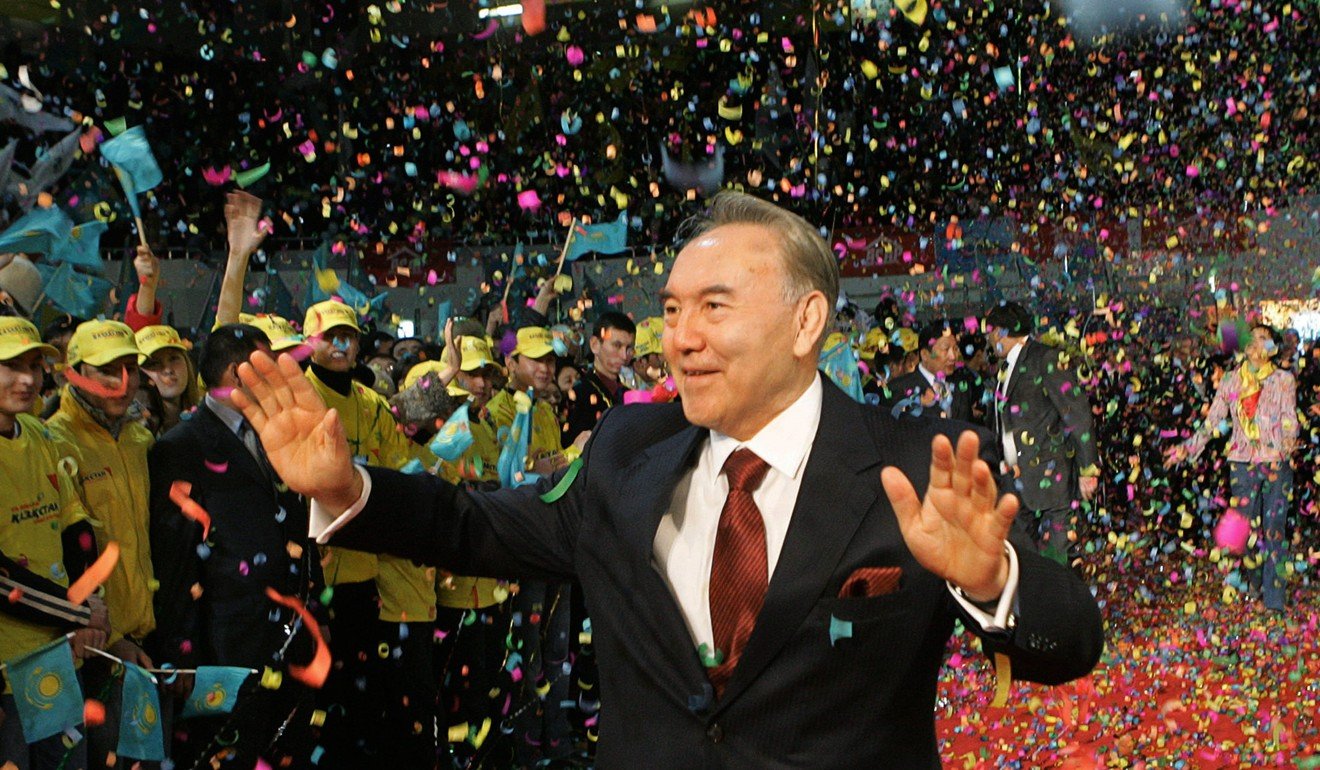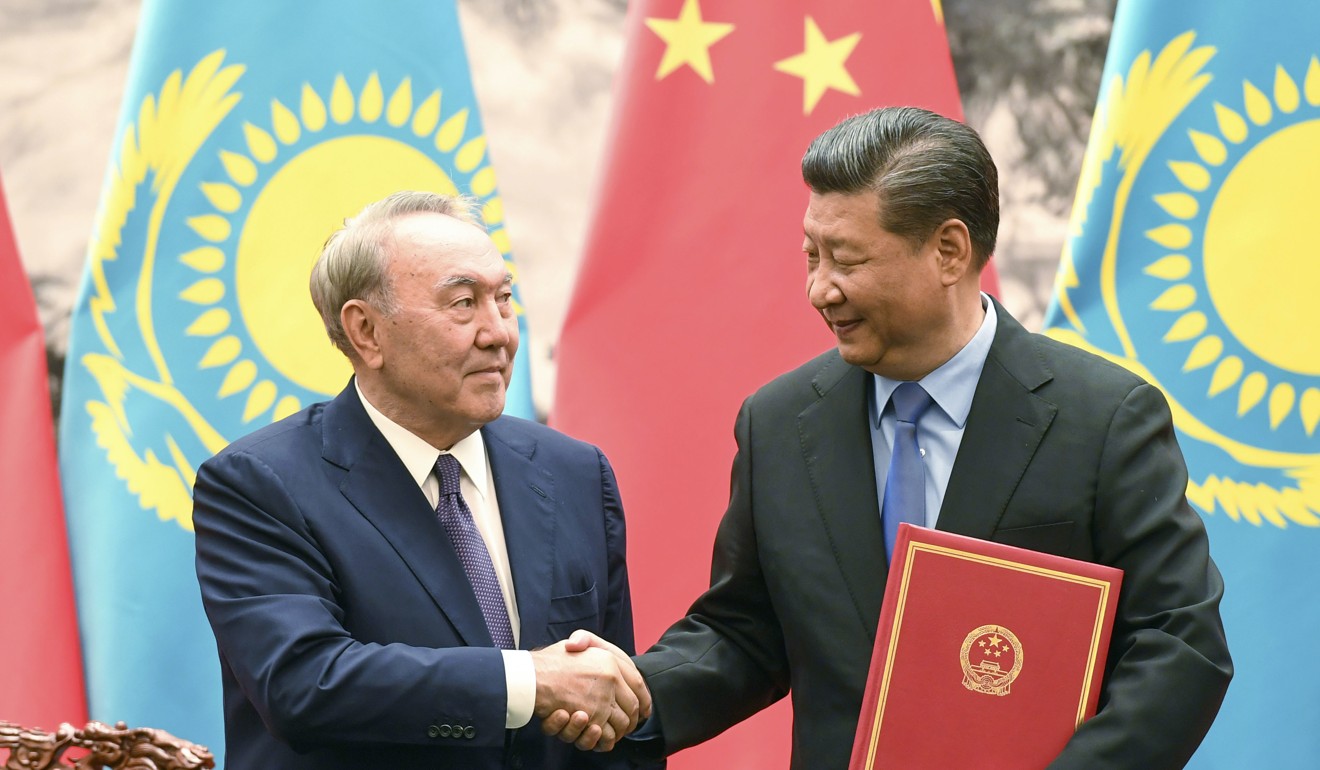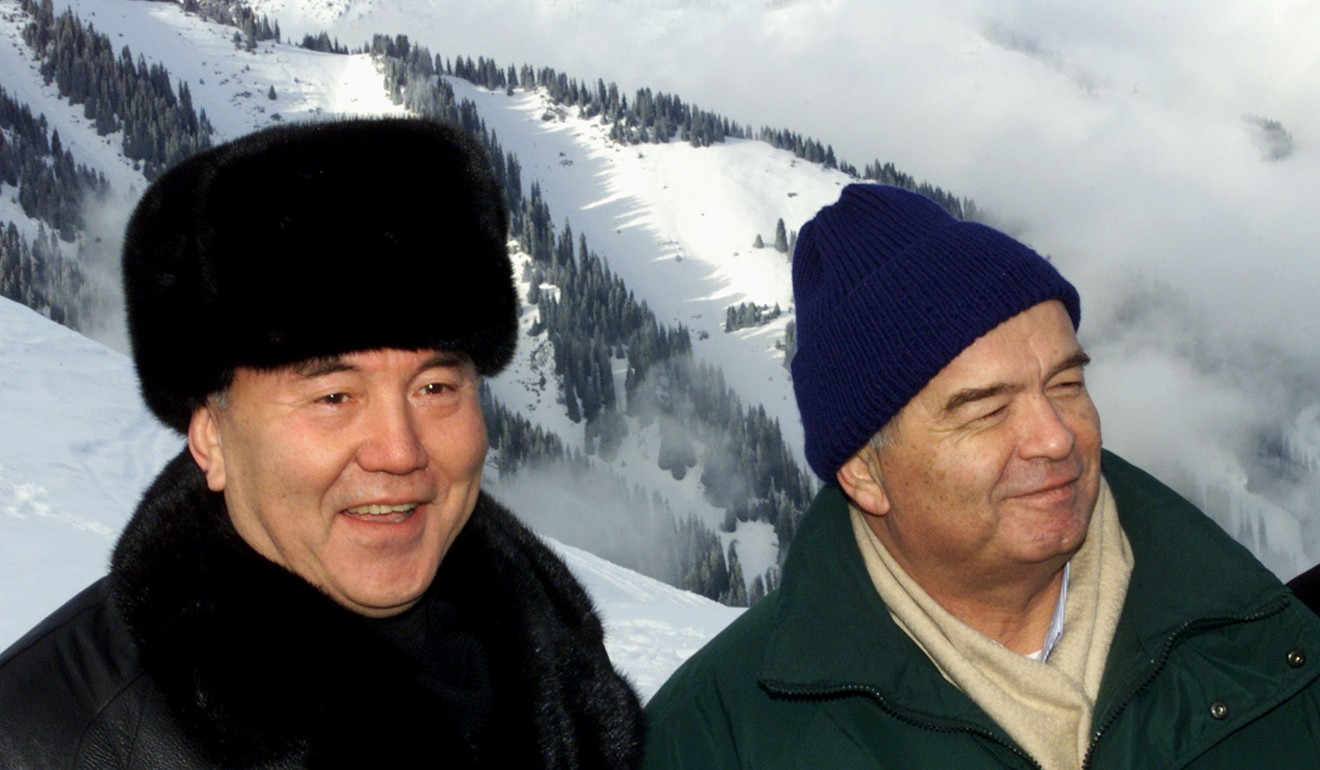
Kazakhstan’s strongman of 30 years Nursultan Nazarbayev unexpectedly resigns, but will still wield considerable power
- Analysts expect Nazarbayev to remain the most powerful person in Kazakhstan even after he steps down
- His effort to do so will be watched closely in the region, not least by Russian President Vladimir Putin
By retaining key posts - as head of the security council and chair of the ruling party - the 78-year-old Central Asian strongman will be in a position to keep ruling the nation behind the scenes.
“Nazarbayev is not going anywhere, he will be in charge of the country for as long as his health allows,” said Central Asia analyst Andrei Grozin.
Kassym-Jomart Tokayev, speaker of the upper house of parliament, will take over as Kazakhstan’s acting president for the remainder of his term in line with the constitution.

Kazakhstan is expected to hold both presidential and parliamentary elections next year.
Sergey Duvanov, an independent analyst based in Kazakhstan’s largest city Almaty, said Nazarbayev will continue to rule the country “just with a different title”.
“He will continue to have all the power, but that hectic presidential schedule - government meetings, diplomatic visits, ceremonial occasions - will belong to someone else now.”
Eduard Poletaev, director of the Kazakhstan-based World of Eurasia think tank, was even more blunt.
“No need to expect any change,” he said.
Poletaev said the balance of power in Kazakhstan may not change much in the coming years, comparing Nazarbayev to Deng Xiaoping who was China’s ultimate decision-maker until his death in 1997.

He will continue to have all the power
The Kazakh ruler has expressed admiration for Singapore’s founding father Lee Kuan Yew, a personal friend who retained influence over decision-making in the country even after he quit as prime minister.
While analysts had long pointed to the possibility of a phased transition of power in the country of 18 million, the decision “has come as a shock to many in Kazakhstan,” said Joanna Lillis, author of Dark Shadows: Inside the Secret World of Kazakhstan.
“Clearly Nazarbayev had decided to oversee the political transition and establish his legacy once and for all in his lifetime,” she said in written comments.

“He has taken this decision against the background of what’s happening in Algeria, but he retained key duties,” said Poletaev.
Still, analysts said they were impressed at the veteran leader deciding to step aside voluntarily, unlike some of his Central Asian counterparts who left office feet first.

“You have to hand it to him - this is a breathtaking move. He established a tradition of power transfer,” said Andrei Suzdaltsev, a professor at Moscow’s Higher School of Economics.
“And for Central Asia, this is something incredible.”
Leadership transitions in authoritarian Central Asia are the subject of regular speculation due to the region’s deep authoritarian tradition and abundance of oil and gas wealth.
Nazarbayev’s counterpart in Uzbekistan, Islam Karimov, died after 27 years in power in 2016 and was replaced by his prime minister, Shavkat Mirziyayev.

Turkmenistan’s long-ruling first president Saparmurat Niyazov - who died in 2006 - fashioned one of the world’s great personality cults.
His former health minister and one-time dentist Gurbanguly Berdymukhamedov picked up where Niyazov left off, overseeing a system that has no space for independent media or political opposition and sometimes draws comparisons with North Korea.
Even after 20 years, Kazakhs remain cold on Astana’s status as nation’s capital
Many drew parallels between Nazarbayev’s address and the stunning resignation of Russia’s Boris Yeltsin on New Year’s Eve 1999, when he appointed Vladimir Putin as acting chief.
“Take care of an independent Kazakhstan,” said Nazarbayev, echoing Yeltsin’s call to “take care of Russia” in his legendary televised address.

Nazarbayev talked to Putin by phone Tuesday, the Kremlin said, illustrating their close personal relationship.
But Nazarbayev also has sought to balance Russia’s long-time dominance by drawing in Chinese investment and building ties with the West.
China has been expanding its political and economic influence across Central Asia, seeing Kazakhstan as pivotal to its massive Belt and Road Initiative.
Underscoring that geopolitical balancing act, Nazarbayev noted in his speech Tuesday that Tokayev had studied in Moscow and spoke good English and Chinese.
Some also suggested that Putin may borrow from the Kazakh leader’s playbook when the Kremlin chief’s fourth term runs out in 2024.
“One wonders whether this is a model for a certain neighbour to the north,” Sam Greene, director of the Russia Institute at King’s College London, said on Twitter.
World’s longest-serving leaders
Here is a recap of some of the world leaders who have held power the longest - excluding monarchs enthroned for life.
More than four decades
Topping the list with 49 years in power is Cuba’s revolutionary hero Fidel Castro, who handed over to his brother Raul in 2008 when he was in his early 80s.
Taiwan’s first president Chiang Kai-shek was in charge on the island and in mainland China for a total of 47 years until his death in 1975.
North Korean founder Kim Il-sung ran the reclusive state for 46 years before dying in office in 1994. He is still revered as the “eternal leader”.
Muammar Gaddafi ruled Libya with an iron fist for almost 42 years before being ousted and then slaughtered in 2011 by rebels.
Omar Bongo governed oil-rich Gabon for more than 41 years until his death in 2009.
Still counting
Currently, the world’s longest serving president is Equatorial Guinea’s Teodoro Obiang Nguema, with 39 years under his belt since he toppled his uncle in 1979.
Others that are still counting their years in power:
Cameroon’s President Paul Biya: 36 years.
Congo President Denis Sassou: 34 years, excluding a five-year pause.
Cambodian Prime Minister Hun Sen: 34 years.
Uganda’s President Yoweri Museveni: 33 years.
Iran’s Supreme Leader Ayatollah Ali Khamenei: 29 years.
Sudan’s President Omar al-Bashir: 29 years.
Chad’s President Idriss Deby: 28 years.
Tajikistan’s President Emomali Rahmon: 26 years.
Eritrea’s President Isaias Afewerki: 25 years.
Belarus’s President Alexander Lukashenko: 25 years
Additional reporting by The Washington Post and The Guardian

.png?itok=arIb17P0)